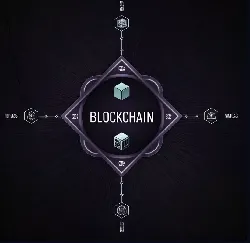Smart Contract Audit

Smart Contract Audit
With the rapid advancements in the field of Smart Contracts and the expanding use of Blockchain technology across various industries, the security analysis and review of these contracts have become increasingly important. Since once a Smart Contract is deployed on the Blockchain, it cannot be edited or updated due to the immutability feature, and because these contracts are publicly visible and accessible on public networks (Transparency), they must be assessed both before deployment and during later stages. This review helps identify security vulnerabilities and prevents potential exploits such as unauthorized asset transfers or changes to the contract's functionality.
A Smart Contract audit involves analyzing the contract’s code to identify security weaknesses and potential coding issues. This process plays a vital role in enhancing security, improving performance, and reducing risks associated with decentralized applications in the Web3 ecosystem.
Audit Methods:
-
Manual Audit: Conducted by security experts and Smart Contract developers who thoroughly examine the code and analyze the implementation methods.
-
Automated Audit: Using specialized tools designed to analyze and identify common vulnerabilities in Smart Contracts.
-
Hybrid Approach: A combination of manual and automated audits for a more comprehensive and accurate analysis.
Upon completion of the audit, a report is generated that includes a security analysis of the Smart Contract from the perspective of several internationally recognized tools, along with explanations of potential vulnerabilities. This report helps projects identify security issues so developers can take the necessary actions to improve the security of the Smart Contract.
Key Features of Security Audits
Smart Contract audits at CodeAuditPlus are performed automatically using various trusted tools in the field, then delivered in the form of a report to the client. The goal is to evaluate the Smart Contract from multiple aspects.
The audit report includes:
-
A list of contracts, libraries, and interfaces, along with the functions used and the types of input and output parameters.
-
Statistical reports of vulnerabilities based on their importance and type.
-
Detailed information about each vulnerability, broken down by the tools used.
-
Additional details for high-priority vulnerabilities in the form of attachments.
Each vulnerability can be classified based on severity:
-
Critical: Directly impacts the secure operation of the protocol.
-
Major: Centralization or logical errors that could lead to the loss of user funds or control over the protocol.
-
Medium: Affects platform performance or reliability.
-
Minor: Issues arising from inefficient code that do not threaten overall security.
-
Informational: Related to style or best industry practices.
Audit Duration
The time required to complete an audit can be determined by the client during the audit request process, with options for both regular and urgent requests.
The duration depends on several factors such as the version of the Solidity compiler, the size and complexity of the code.
Typically, the auditing team can deliver the report within a few days; however, larger projects may require more time.
Allocating enough time for a security audit is critical for the success of Blockchain projects.
Our Solution:
Audit Outcomes
Security audits are so important that they should be considered a part of the Smart Contract development process.
Audit reports provide clients with greater confidence, assuring them that by addressing the identified vulnerabilities, their Smart Contract code achieves a higher level of security and is ready for deployment.
These reports help build trust among investors and customers, ensuring that their financial assets are better protected.
Conclusion
Smart Contract audits are an essential process that, through code analysis and automated methods, help identify security problems. This process significantly contributes to improving the security and reliability of decentralized applications in Web3, providing the necessary assurance to development teams and investors before contract deployment.
Resources
https://codeauditplus.com/blogs/block-chain
https://codeauditplus.com/blogs/smartcontract
https://en.wikipedia.org/wiki/Blockchain
https://en.wikipedia.org/wiki/Smart_contract






